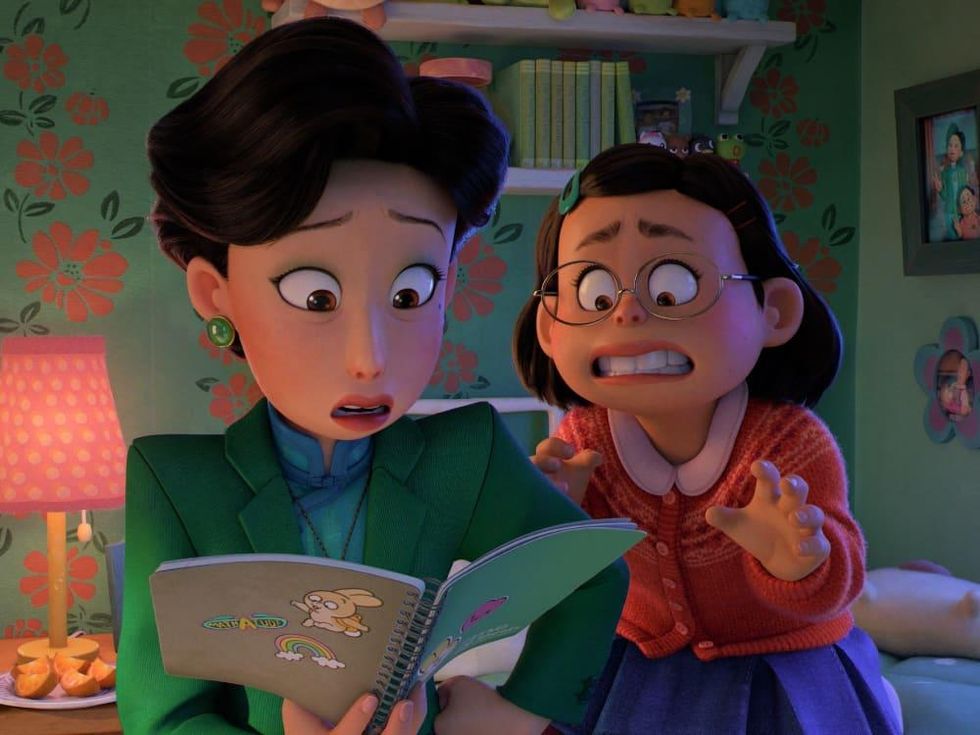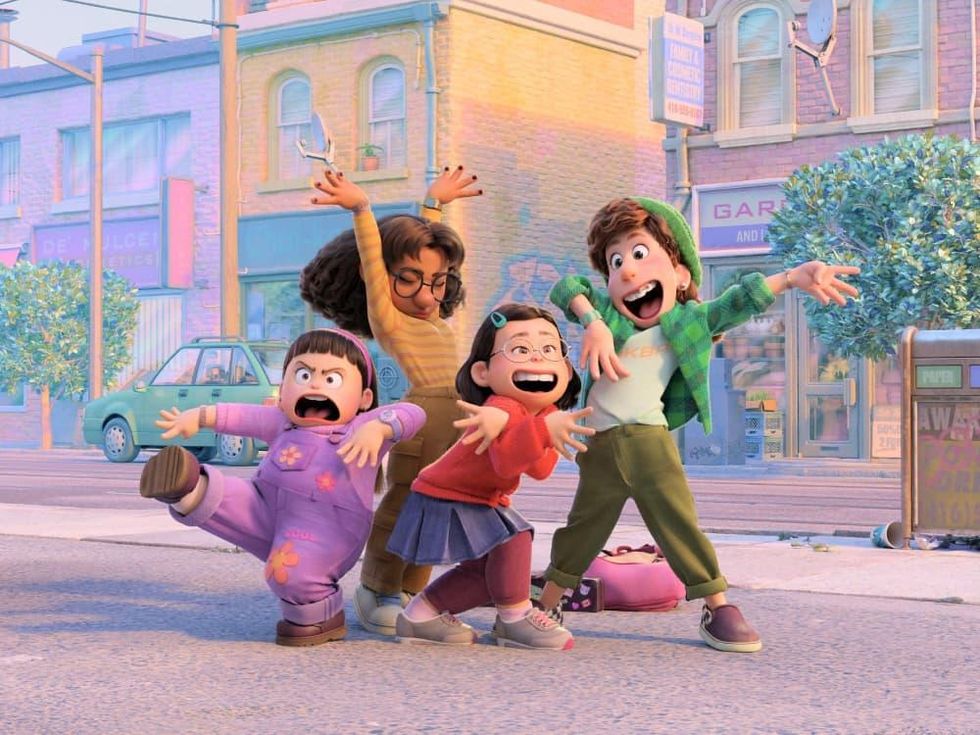Although Pixar is known for turning out plenty of original films, the 2010s felt like a push-and-pull with that idea, featuring seven sequels to existing properties and only four original movies. So far in the 2020s, though, they’ve gone 4-for-4 with original ideas, with Onward, Soul, Luca, and their latest, Turning Red.
The film, directed by Domee Shi and written by Shi and Julia Cho, might just be Pixar’s biggest gamble to date. It focuses on Mei Lee (voiced by Rosalie Chiang), a 13-year-old growing up in Toronto who is an overachiever if ever there was one. She excels at pretty much everything in school, spurred on by the high expectations of her mother, Ming (Sandra Oh).
However, she’s also at the age where hormones are starting to run wild, and a crush on a boy brings forth something wholly unexpected: Mei turning into a giant red panda when she experiences heightened emotions. As it turns out, the red panda transformation is genetic, as every woman in her family has gone through the same thing at the same age. Ming has a way to control the appearance of the creature, but Mei isn’t so sure she wants to rein it in.
The film, per Pixar tradition, does contain a lot of cute elements, including Mei’s look as the giant red panda (soon to be on every kid’s toy wishlist) and goo-goo eyes that multiple characters make when enraptured with something. But it’s also a story about a very certain time in a young girl’s life, with both subtle and overt references to that time.
When Mei first transforms, her mom immediately interprets Mei’s mood change as her having started her period, and there are a couple of very funny sequences surrounding that. But, despite a title that could be seen that way, the film feels more like a general metaphor for puberty. A big part of the story shows Mei and her friends developing crushes, most notably their obsession with the fictional boy band 4*Town.
The film leans heavily into Mei’s Chinese heritage, as well. Mei helps run her family temple with her mother, giving tours to tourists. Ming is very controlling over Mei’s life, playing into the “tiger mom” stereotype of Chinese mothers, although the filmmakers are careful to soften her around the edges so she doesn’t come across as too harsh.
Shi, who won an Oscar for the Pixar short film Bao, is quite clearly telling a version of her own story as a teenager growing up in Canada. The film is set in 2002, the same age Shi, who was born in 1989, would have been that year. It’s the latest in the effort by Pixar and Disney to make their storytelling more diverse, and it will expose many viewers to things they’ve never seen before.
It’s unclear, then, why the film is cast the way it is. Most of the casting is fine, including Chiang as Mei, but placing Oh in the mother role seems like an odd choice. This has nothing to do with Oh’s fantastic acting ability, and more to do with the fact that Oh is Korean. If a film is going to be steeped in so many Chinese traditions, why would they choose to cast a non-Chinese woman in such an important role? Oh also happened to grow up in Canada, but the Canadian part of her heritage seems like the least important aspect for this role.
Other than that misstep, Turning Red is another fun and interesting entry in the Pixar filmography. It may not be as broadly appealing as some of their earlier fare, but it’s great to see the studio expanding its profile to tell different types of stories.
---
Turning Red debuts on Disney+ on March 11.




